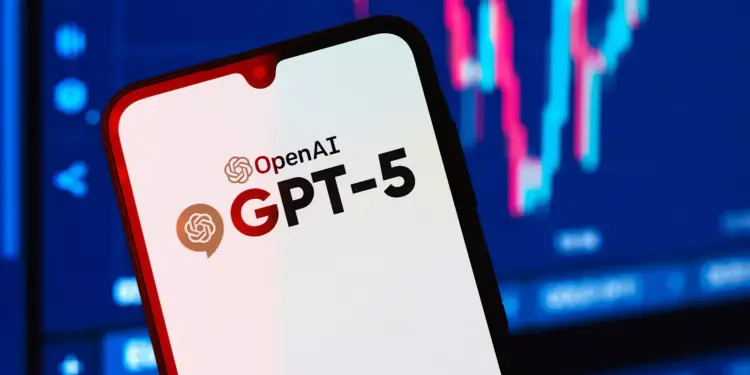August 7, 2025, Openai officially launched GPT-5the latest version of its famous model of conversational artificial intelligence. This launch marks a new stage in the world race at AI, with important technical advances but also major strategic and ethical issues.
A technological leap with several dimensions
GPT-5 is not only an incremental update. Openai has redesigned its structure to offer a more effective, smarter and above all more accessible model. Unlike its predecessors, GPT-5 is now available for free for all users, including an automatic system that selects the best version according to the task.
This new version significantly improves the quality of reasoning, understanding the context and the accuracy of the responses, in particular in complex fields such as health, computer coding and writing. Access in “Step-By-Step Reasoning” mode is also a novelty reserved for subscribed users, offering an in-depth and transparent reflection of the responses.
A rethought interface for the user
The user experience has been completely redesigned with GPT-5. No more manual selection of models: an intelligent system automatically chooses the most suitable version. Openai also introduced several “personalities” – from cynic to the Nerd via the earpiece – to personalize the interactions.
In parallel, the tool is now better integrated with productivity services such as Gmail or Google Calendar, making AI more useful in daily and professional management.
Fierce competition and geopolitical issues
The launch of GPT-5 revives competition between tech giants. Microsoft, a historic partner of Openai, deploys GPT-5 in its services, while the rival Elon Musk alerts on the growing domination of Openai. In a recent statement, Musk said that “Openai will devour Microsoft”, highlighting the rise in tensions in the AI ecosystem.
This rivalry is part of a broader context of technological arms race, where artificial intelligence becomes a major strategic lever for the global powers.
The issue of security and ethics
OPENAI ensures that GPT-5 incorporates advanced mechanisms to limit biases, reduce “hallucinations” (erroneous responses) and avoid malicious uses. These “security” measures are presented as an essential step to make the AI responsible.
However, some experts remain cautious. The increased power of the model asks questions about the control and regulation of these technologies, in particular in terms of impact on employment, disinformation and privacy.
EU and Tunisia in the face of the excesses of artificial intelligence








